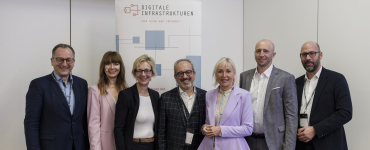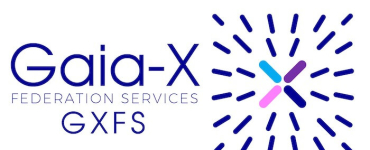By Nils Klute, Project Manager Communication EuroCloud Germany
Gaia-X is driving the data economy – and putting the economy to the test. “Digital value creation relies on cooperation, collaboration and coopetition,” says Michael Jochem, Member of the Board of Directors Gaia-X Association for Data and Cloud (AISBL) in this interview. He explains what data and agriculture have in common, and why the value of data must be measurable for Gaia-X to take off.
eurocloud.de: Mr Jochem, you recently joined the Gaia-X board. What does this involve?
Michael Jochem: The Board of Directors is made up of 26 experts newly elected to develop a common understanding of what Gaia-X should achieve. In dialogue with management, we are now developing the guard rails for operational implementation.
What is important in this?
For example, how we can already motivate providers to set up the first Gaia-X services. On their own, Federation Services, whose specification is on the way via the eco Association, are not enough to earn money. But they create the foundation for being able to share, provide and automatically process data with confidence.
Why automatically?
For example, the opportunities of the data economy will not wait for the results of legal audits. Whether general terms and conditions, non-disclosure agreements or compliance: Gaia-X services must be able to connect automatically in a legally compliant manner.
Could you tell us how this works?
It’s all about Standards! In a standardised ecosystem, all functions, offers and services can be integrated in a modular way, like building blocks. They make the interoperable systems and intelligent business models in Industry 4.0 possible in the first place.
And how does Industry 4.0 earn money with standards?
This happens, for example, through business models in which manufacturers no longer sell their machines, but rent them out. Customers only pay according to consumption or per part produced. Smart services like these require intelligent systems that are able to process and share data in a standardised way.
Speaking of sharing data: How prepared is the industry?
Everyone is willing to set up a use case to be able to try something out. However, few are open to industrialising data with third parties. Companies are concerned about their own interests and want them to be protected from competition. But the distributed and connected data ecosystem of Gaia-X will only ignite if entrepreneurs change their way of thinking.
In what way?
In fact, digital value creation relies on cooperation, collaboration and coopetition. This runs partly counter to market principles that have been considered established for centuries. Co-operative models have not yet arrived in the industry. This may also be due to the fact that doing business is, in a way, betting on a better future. This is a bet that can only be won if everyone is participating.
What does this mean exactly?
This means that sharing is the basis for wealth. The writer Marc Elsberg published a book in 2019 that made the idea of the advantage of cooperation known over the Farmers Fable. The fable goes back to a Work of the London Mathematical Laboratory. This describes how farmers benefit when they share their harvest cooperatively instead of farming only for themselves. If everyone can sow more, the yield will be increased for everyone. It is no different with data! But this only happens if everybody gets involved in the bet – and to begin with, without any concrete prospect of winning.
How can this problem be resolved?
Be it assets, real estate or risks – companies are used to being able to measure values, depreciate them and offset them via financial accounting. However, there is still a lack of mechanisms to determine the value of data. Anyone who shares, blends, and refines information into data-based services from which third parties are to benefit needs to know their price. A first step towards Gaia-X taking off. As long as we don’t let data lie unused in silos and say goodbye to proprietary tenure thinking.
How proprietary is industry thinking?
It would be great if individual manufacturers could realise a machine-as-a-service. However, these are often only successful because they force customers into a lock-in situation. Standards are the solution to prevent lock-ins and to realise open ecosystems in which data-based services flourish across companies. What users like puts the thinking of the business community to the test: Those who manufacture standardised components make themselves interchangeable, in a certain sense. But if you are not committed to standards, you will only reap your own harvest and will leave the potential cooperation benefits from data unused.
What could a cooperative and collaborative business model look like in Industry 4.0?
The Industry 4.0 platform in which I am involved as a working group leader, has presented a new use case in summer 2020: Collaborative Condition Monitoring shows what value can be created when everyone shares and uses their data. If manufacturers, suppliers and users exchange their respective information multilaterally, machines could be operated more reliably in the long term. The foundation for the cooperative advantage is a trustworthy, transparent, open and sovereign infrastructure, as will be provided by Gaia-X, and an entrepreneurial mindset that has understood what matters today.
What does this mean?
It means that we have a technical solution for almost every problem today! With the Asset Administration Shell, the digital twin of Industry 4.0, a specification and first reference implementations are available to describe, map and control processes, entities and assets in Industry 4.0 in a standardised way. And with Gaia-X, an infrastructure would be available for the entire business to orchestrate processes across the board and realise data-based products and services. Now it is a question of dissolving the reservations of the entrepreneurs so that they get involved in the bet.
And what would be your bet?
That the business community quickly understands how to create value cooperatively, and on our ability to quantify the value of data. Take the example of Collaborative Condition Monitoring: The cost of a data-based service can perhaps also be measured according to the amount of money that can be saved. Product improvements and increasing the availability of machines and plants: If we allow information to flow multilaterally through Gaia-X, these are two ideas of many that we now need to think about.
Thank you for the interview!
Michael Jochem
Michael Jochem is the Director Chief Digital Office Industry at Robert Bosch GmbH. Jochem has more than 30 years of experience in the field of industrial automation in various functions at Bosch Rexroth AG and Robert Bosch GmbH. Jochem is a member of the Board of Directors of Gaia-X AISBL and of the steering committee of Plattform Industrie 4.0, where he leads the working group “Security of networked Systems” and the project group “Collaborative Condition Monitoring (CCM)”. In addition, Jochem is Chair of the “Cybersecurity” working group of the German Electrical and Electronic Manufacturers’ Association (ZVEI). Jochem studied computer science with a minor in business administration at the Technical University of Darmstadt.




